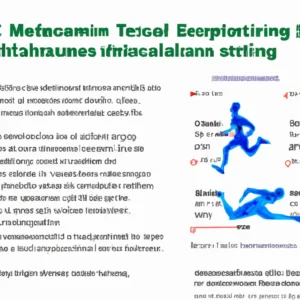**”The Impact of Community Engagement in Online Group Training: How Virtual Interaction Enhances Participant Motivation and Accountability”**
The Impact of Community Engagement in Online Group Training: How Virtual Interaction Enhances Participant Motivation and Accountability
Online group training has become popular. Virtual interactions drive community engagement and boost participant motivation and accountability. This blog explores how these factors influence online training programs.
The Power of Community Engagement
Community engagement plays a crucial role in online training. Participants connect with others, fostering a sense of belonging. This connection boosts motivation and encourages consistent participation.
Participants share their experiences and challenges. When individuals discuss struggles, they often find support from others facing similar issues. This reassurance increases commitment to the training program.
Motivation Through Virtual Interaction
Motivation significantly impacts online group training success. Engaging in discussions and activities with peers ignites enthusiasm. For example, participants share goals and celebrate achievements together.
Incorporating gamification elements enhances motivation. Many online platforms offer leaderboards, badges, and rewards. These features encourage friendly competition, pushing individuals to stay engaged and meet training objectives.
Setting Goals Together
Setting goals within a community amplifies motivation. Participants form small groups to establish collective objectives. This practice fosters accountability, as individuals feel responsible to their peers.
Breaking larger goals into smaller milestones makes them more attainable. Participants celebrate each milestone, reinforcing their commitment to the program. Shared goal-setting enhances motivation and fosters collaboration.
Peer Accountability
Accountability emerges as a vital factor in online group training. When participants know others monitor their progress, they feel compelled to stay on track. Regular check-ins and updates reinforce this sense of responsibility.
Accountability partners provide encouragement and constructive feedback. Participants pair with someone who shares similar goals. This partnership fosters mutual support and drives continuous improvement.
The Role of Communication
Effective communication enhances the online training experience. Regular interaction through video calls, chat groups, and forums keeps participants engaged. This communication allows real-time feedback and guidance.
Open dialogue encourages participants to share best practices. Participants exchange tips, strategies, and resources to improve training. Knowledge-sharing enriches the learning experience for everyone involved.
Creating a Safe Space
Establishing a safe space for discussions is essential. Participants should feel comfortable sharing thoughts and struggles. Group leaders set guidelines to foster respect and support within the community.
Promoting positivity and encouragement enhances engagement. Participants thrive when they feel valued and understood. A supportive environment boosts motivation and accountability.
Utilizing Technology for Engagement
Technology plays a significant role in enhancing community engagement. Many platforms offer tools to facilitate interaction. For instance, video conferencing enables face-to-face communication, creating personal connections.
Utilizing social media broadens the community’s reach. Participants share their journeys and successes beyond training sessions. This visibility inspires others and fosters pride in personal achievements.
Health Benefits of Online Group Training
Online group training offers numerous health benefits. Participants often experience improved physical fitness, mental well-being, and social connections. Engaging in physical activity with others boosts motivation and adherence to workout routines.
Group training promotes accountability, leading to consistent exercise. Participants push each other to meet fitness goals. Regular exercise reduces stress and anxiety, contributing to better mental health.
Building relationships within a community enhances emotional well-being. Participants form friendships that extend beyond training. These connections provide valuable support systems, improving overall life satisfaction.
Conclusion
In summary, community engagement significantly impacts online group training effectiveness. Virtual interactions enhance participant motivation and accountability. Engaging discussions, shared goal-setting, and peer support foster collaboration.
Effective communication and technology enhance the training experience. Participants enjoy numerous health benefits, including improved fitness and mental well-being. Embracing community engagement in online training creates a powerful pathway to success.
As individuals engage with each other, they embark on a journey of growth, motivation, and accountability. The impact of these connections resonates beyond the virtual training room, empowering participants to achieve their goals.
Below are related products to the topic if you’re interested:
FAQ
How does community engagement enhance motivation in online group training?
Community engagement fosters connections among participants, creating a sense of belonging that boosts motivation. When individuals share their experiences and challenges, they find support from others facing similar issues, which increases their commitment to the training program. Engaging discussions and celebrating achievements together further ignite enthusiasm and encourage consistent participation.
What role does accountability play in online group training?
Accountability is crucial in online group training as it compels participants to stay on track. Knowing that others are monitoring their progress encourages individuals to maintain their commitment. Regular check-ins and forming accountability partnerships provide constructive feedback and mutual support, driving continuous improvement and reinforcing responsibility among peers.
What are some effective communication strategies for enhancing online training experiences?
Effective communication strategies include utilizing video calls, chat groups, and forums to maintain regular interaction among participants. This fosters real-time feedback and guidance, while open dialogue encourages sharing of best practices, tips, and resources. Creating a safe space for discussions helps participants feel comfortable sharing their thoughts and struggles, ultimately boosting engagement and motivation.















Post Comment